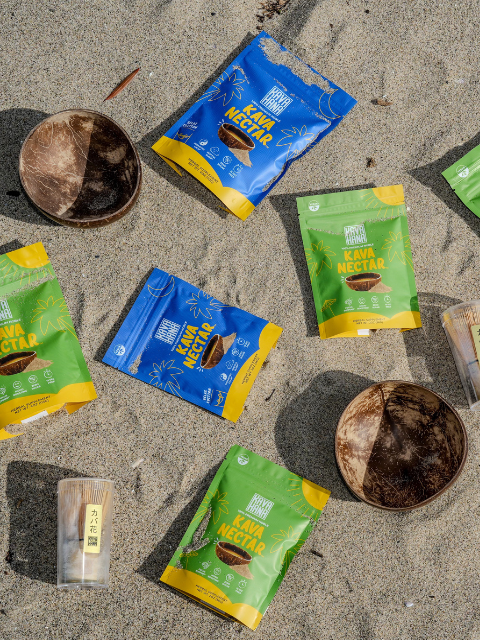For decades now, kava has gotten a bad reputation for potentially causing liver damage. Besides not being true, the worst part about this myth is that even though there is evidence that shows kava is not completely to blame, people continue to believe it.
Thankfully, an in-depth study by the World Health Organization provided concrete evidence that kava is not to blame for liver damage.
The history behind the myth
It all started in the 1990s when there was a series of liver issues reported in Europe and the United States from patients using products containing kava. Its calming effects made it a popular supplement, especially for those struggling with anxiety, sleep issues, and emotional distress.
But in the early 2000s, the reports of liver damage in those using kava supplements gained media attention. The German Federal Institute had 83 cases documented, including conditions as severe as liver transplants and death. This led to many European and North American countries banning or heavily regulating kava supplements.
These restrictions confused the island nations, who had been using kava for centuries and never experienced liver issues. Some researchers argued that kava was safer and more effective for anxiety and mood disorders than conventional medications. It doesn’t have the same side effects or negative long-term effects.
It wasn’t until 2014 that Germany’s Federal Court finally concluded that kava does not lead to liver damage. These results came from poorly conducted research and poorly defined herbal remedies. In fact, it was decided that side effects from it were so rare that they should be considered insignificant.
Detangling misinformation
The biggest issue is that the term “kava supplement” was used loosely. Quality control in the supplement world is a huge issue, as products labeled as natural supplements aren’t strictly regulated.
Unfortunately, many supplement companies add ingredients and fillers to their products to boost sales profits. This means other ingredients may be present that could affect the supplement’s work. In kava’s case, most of the supplements given in the studies were in tablet form, which is very different from the traditional tea preparation that Pacific Islanders use.
Other evidence, when looking at many of the case studies involving liver transplants or death, shows that most of the patients were either taking a kava supplement with other ingredients or medication alongside it. This would explain a lot, considering there have been no cases of pacific islanders having liver issues.
When reading the research included in the WHO report, many studies didn’t include information on additional medications or supplements that may have been taken while also taking kava. It is important to remember that even though things are “natural,” they may still negatively interact with other ingredients.
The bright future for kava
Thankfully, things seem to be shifting for kava. The more we talk about the limitations of the research claiming liver damage from kava, the more deflated the claims become.
It’s important to remember that we can’t make assumptions when it comes to supplements. Even though they’re natural, precautions still need to be taken to prevent them from interacting negatively with other ingredients or medications. So it’s critical to always look into that and talk to your doctor before trying anything new. While kava on its own is safe, it is known to have negative interactions with alcohol and other medications.
It’s promising that we can challenge the ideas and highlight that the benefits of kava outweigh the claimed harms. Research has shown that it helps people with anxiety, sleep issues, depression and even potentially ADHD. As these myths of kava being harmful fade even more, it opens doors to more research and advocacy for it as an important medicine for mental health and wellness.
* Please note that the majority of kava research pertains to extracts, which often undergo significant processing and may contain additional ingredients and fillers that can influence their efficacy. It is crucial to consider this distinction when reading about kava studies. To draw an analogy, enjoying natural kava as a beverage can be likened to experiencing a freshly brewed cappuccino, whereas kava extracts are akin in functionality to a caffeine pill. Both forms have their unique benefits and can cater to different preferences and needs. While it’s helpful to understand research on kava extracts, please view it critically and remember that natural kava offers a uniquely holistic experience.


